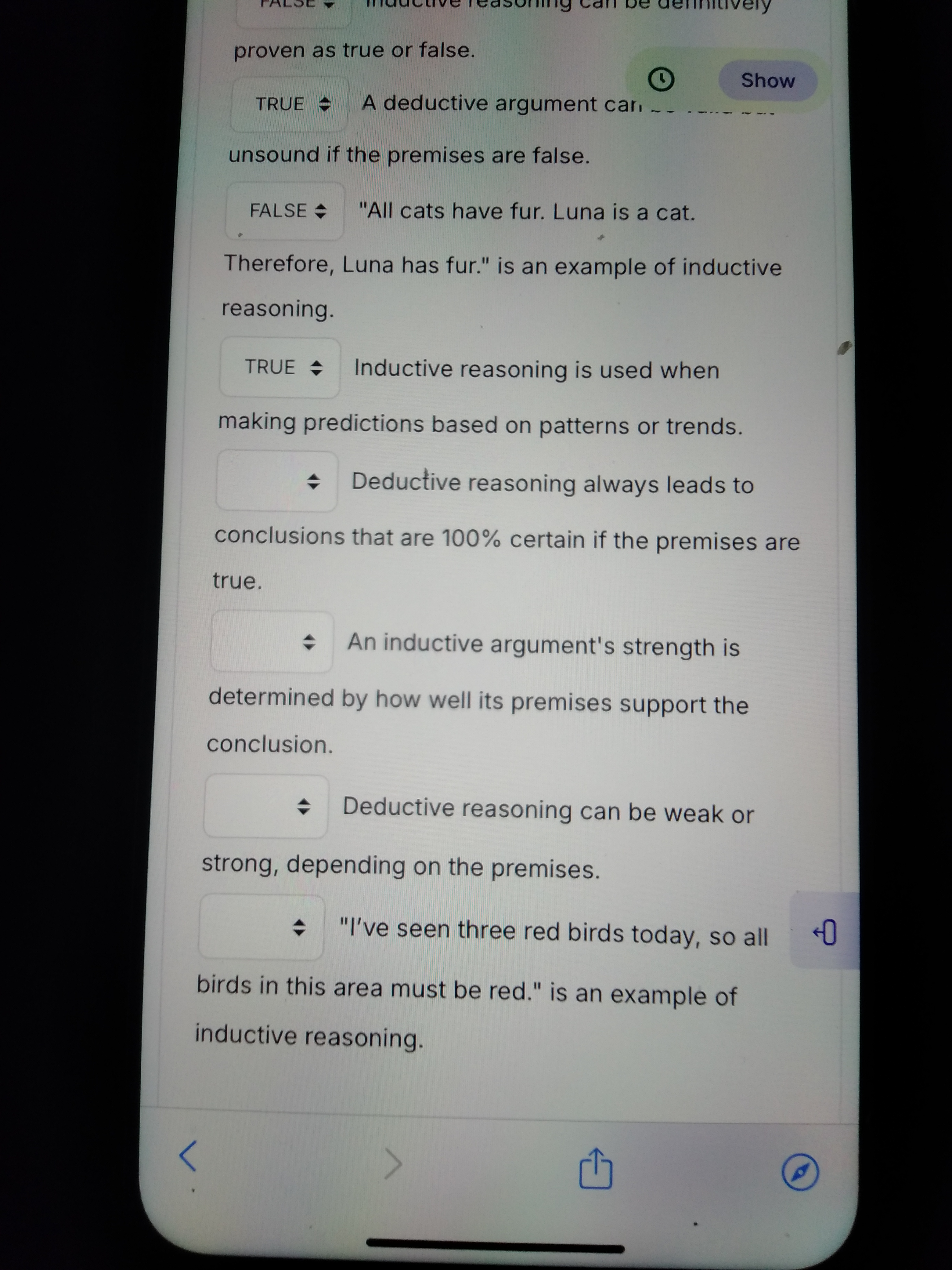Inductive reasoning can be definitively proven as true or false. True or False? A deductive argument can be called unsound if the premises are false. True or False? 'All cats have... Inductive reasoning can be definitively proven as true or false. True or False? A deductive argument can be called unsound if the premises are false. True or False? 'All cats have fur. Luna is a cat. Therefore, Luna has fur.' is an example of inductive reasoning. True or False? Inductive reasoning is used when making predictions based on patterns or trends. True or False? Deductive reasoning always leads to conclusions that are 100% certain if the premises are true. True or False? An inductive argument's strength is determined by how well its premises support the conclusion. True or False? Deductive reasoning can be weak or strong, depending on the premises. True or False? 'I've seen three red birds today, so all birds in this area must be red.' is an example of inductive reasoning. True or False?

Understand the Problem
The question discusses different statements regarding inductive and deductive reasoning, asking whether each statement is true or false. It tests the understanding of the logical concepts of induction and deduction.
Answer
1. False 2. True 3. False 4. True 5. True 6. True 7. False 8. True
- False
- True
- False
- True
- True
- True
- False
- True
Answer for screen readers
- False
- True
- False
- True
- True
- True
- False
- True
More Information
Inductive reasoning suggests a probable conclusion based on patterns, while deductive reasoning guarantees a true conclusion if the premises are true. An unsound deductive argument has false premises.
Tips
Confusing inductive reasoning as providing certainty is a common mistake. Deductive reasoning guarantees certainty only with true premises.
Sources
- Deductive or inductive? - global.oup.com
- Basic Argumentation - NYU - pages.nyu.edu
AI-generated content may contain errors. Please verify critical information